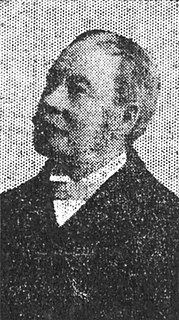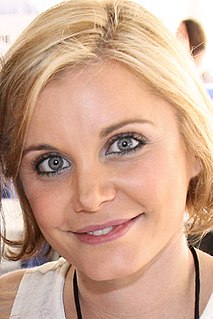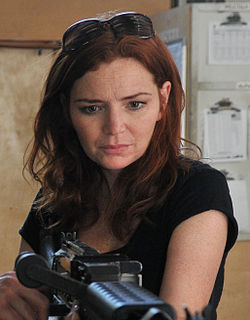A Quote by Michael J. Rosen
The cat is a character of being, the dog, a character of doing.
Related Quotes
Reputation is seeming; character is being. Reputation is manufactured; character is grown. Reputation is your photograph; There is a vast difference between character and reputation. Reputation is what men think we are; character is what God knows us to be. Reputation is seeming; character is being. Reputation is the breath of men; character is the inbreathing of the eternal God. One may for a time have a good reputation and a bad character, or the reverse ; but not for long.
You have no control over your cat! You can't say to your cat, "Cat, heel! Stay! Wait! Lie down! Roll over!" 'Cause the cat's just gonna be sitting there going, "Interesting words ... have you finished?" While you're shouting all this to your cat, your dog's next to you, going ... [mimes obeying all commands] "What the hell are you doing? I'm talking to the cat!" "Oh, I'm sorry!"
I do not know what the cat can have eaten. Usually I know exactly what the cat has eaten. Not only have I fed it to the cat, at the cat's insistence, but the cat has thrown it up on the rug, and someone has tracked it all over onto the other rug. I do not know why cats are such habitual vomiters. They do not seem to enjoy it, judging by the sounds they make while they are doing it. It's their nature. A dog is going to bark. A cat is going to vomit.
You have a certain objectivity, as a member of the audience, and you can come away maybe being provoked into a certain discourse or a certain arena of questioning, regarding how you would deal with things that your character has to deal with. Whereas when you're doing a film, once you start asking, "What would I do?," you're getting the distance greater between yourself and the character, or you're bringing the character to you, which I think is self-serving, in the wrong way. The idea is to bring yourself to the character.
When you're no longer seeing yourself, in some ways. You're as close to being as you can be.I suppose that's consistent with the moment that the mind actually turns off, and is no longer questioning what you're doing. When the questions stop, that's when the real acting takes over. And trying to get to the point where the questions stop, "Would I do this? How do I feel about that as a character?" When those stop, and it's just doing X, Y, and zed, because that's what you'd do as this character, because you're inside this character somehow - that's when it really kicks off.
When you are writing, you have to love all your characters. If you're writing something from a minor character's point of view, you really need to stop and say the purpose of this character isn't to be somebody's sidekick or to come in and put the horse in the stable. The purpose of this character is you're getting a little window into that character's life and that character's day. You have to write them as if they're not a minor character, because they do have their own things going on.






































